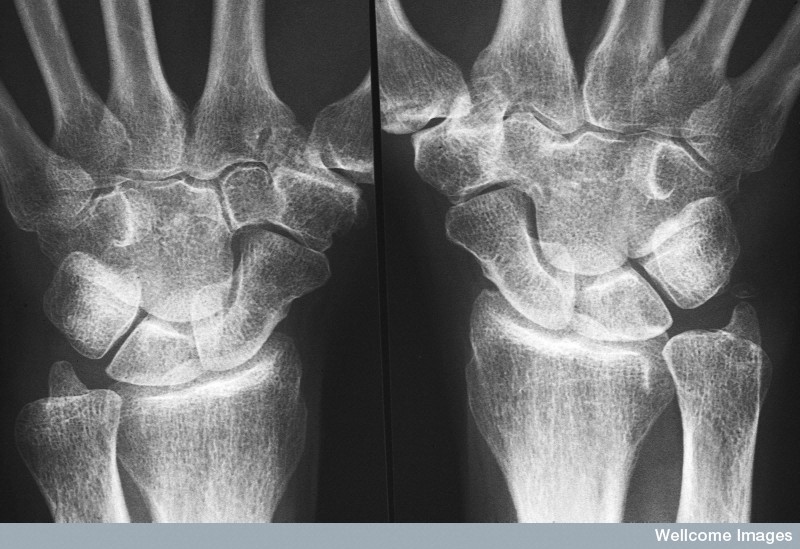Rheumatoid Arthritis (RA) is an autoimmune disorder affecting 1.3 million adults in the United States. As it progresses, RA destroys joint tissue and the tissue lining the outside of organs, causing long periods of stiffness, reduced strength, loss of mobility, and fatigue. There is no cure for this disease; there are only treatment options that alleviate symptoms. In order to increase the longevity of joints and organs, people with RA must make lifestyle changes, such as changing one’s eating habits, living a more active lifestyle, and being flexible when planning for the future.
Image source: Burger/Phanie
For example, a person who may have previously enjoyed high intensity exercises would now find themselves unable to keep up with their old routine due to excessive joint discomfort. Since joints are being constantly attacked, they weaken as time goes by. This is why it is important to keep the bones and muscles near the joints as strong and healthy as possible. The best way to do that is through low intensity exercise like strength training and yoga to prevent or counteract the muscle wasting that affects about half of the people with Rheumatoid Arthritis.
Image source: Alexandra Grablewsk
Patients often find that certain foods—especially processed foods, and ones high in sugar or saturated fats— increase pain and discomfort. This is because these foods activate the inflammatory pathways in the body. It is important that people with Rheumatoid Arthritis become aware of which foods cause inflammatory flares so that they can avoid them. According to the Arthritis Foundation, foods high in antioxidants and Omega-3 can help decrease inflammation in the body. The Cleveland Clinic recommends eating a Mediterranean diet consisting of a lot of fresh fruit and vegetables, fresh fish, olive oil, and limiting red meats and carbohydrates.
Rheumatoid Arthritis can make you feel alone and it is not uncommon to become depressed. This is why finding a support group of people with similar ailments, or seeking support from friends and relatives, is recommended when dealing with this disease. Speak to your physician regarding the best exercise, eating, and support system treatment options for you.
For more information about Rheumatoid Arthritis visit Arthritis Foundation website.
Featured Image Source: Wellcome Photo Library










